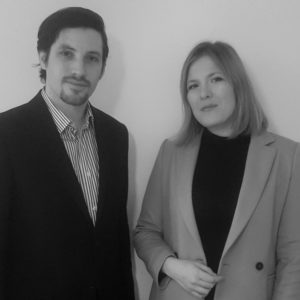

Sébastien Lachaussée & Elisa Martin-Winkel
Produce a film with an African country
The 2017 edition of the Cannes Film Festival has again highlighted films with african background. Among them, « Until the birds return » by Karim Moussaoui, coproduced with french production company Les Films Pelleas, and presented at the selection « Un certain regard ».
The films produced or coproduced between France and african countries, french speaking or not, are a part of the french and african cinématographic landscape. Between 2014 and 2016, french producers have coproduced 5 films with Algeria, 9 films with Morocco, 4 films with Tunisia.. but also 3 films with Burkina Faso and 2 with Egypt. We will here have an insight on the numerous possibilities for french producers in the frame of partnerships with Maghrebian or more generally african productions.
COPRODUCE WITH MAGHREBIAN COUNTRIES
France has coproduction treaties with each of those countries, which conditions vary. It is generally speaking understood that coproductions shall have on each side an artistic and technical effective participation, even is exceptions may exist.
Regarding the french moroccan agreement, the participations shall stay between 30 and 70 % of the budget ; in excpetionnal cases minority participation may be of only 10%. The french tunisian and french-algerian treaties have different figures, and the participations shall stay between 20 and 80 %, except specific derogations.
The moroccan cinematographic center proposes different types of subsidies and a council attributes them three times a year. The council decides to grant before and after production subsedes as well as writing and rewriting subsedes. There is notably a national film fund which has selective and refundable aids. This fund benefits from an annual budget of 75 000 000 MAD (approx. 6,9 M €) and sustain each year 2 majoritary moroccan productions, and 2 minoritary moroccan productions. The allocated sums are up to 920 000 € in the limit of 66% of the budget. The conditions are quite restrictive, and it is notably understood that the script shall be connected to the moroccan cultural identity, and that the set shall take place in Morocco with moroccan technicians. In 2017, the fund has notably decided to sustain two french-moroccan films : « Headbang Lullaby » by Hicham Lasri a Pan Production and 5J Productions coproduction, and « Volubilis » by Faouzi Bensaïdi produced by Montfleuri Production and Barney Productions.
The morrocan cinematographic center offers also to foreign producers a tax rebate enabling them to get reimbursed of a part of their local production expenses. Are then reimbursed 20% of eligible expenses, being understood that a minimum of 18 days shooting or 6 days of set up and 12 days of shooting is required.
The algerian agency for culture proposes a selective and non refundable aid, which may be applied by a algerian production company. It can cover up to 40% of the film cost or 90% in case of coproduction with the agency. It is notably understood that no less than 60% of the technical team shall be algerian, and that within an international coproduction the algerian producer shall have no less than 20% of the film rights. The agency has notably coproduced with France, the films « Outlaw » and « Days of Glory » of Rachid Bouchareb. More recently the agency coproduced « Timgad » by Fabrice Benchaouche (Alia Films) or has sustained « Until the birds return » by Karim Moussaoui, (Films Pelleas), which has been selected at the last Cannes Film Festival.
The latter Cannes Film Festival « Un certain regard » selection showed also Kaouther Ben Hania’s « La Belle et la meute » coproduced by Tanit Films and Cinétéléfilms. In 2016, « Hedi » by Mohammed Ben Attia, also a Tanit Films production, won the best picture award at Berlin Film Festival.
Tunisia is accordingly also a frequent partner in matter of coproduction. It is possible to obtain from the National Film Fund « CNCI » a maximum of 500 000 dinars (about 170 000 euros) covering a maximum of 70% of the film costs. This aid has notably benefited to « Hédi » or more recently to « The Love of Man » of Mehdi Ben Attia coproduced by Cinétéléfilms and 4 à 4 productions.
The creation in february 2017 of coproduction film fund for french-tunisian projects goes into the direction of more subsedes for french-tunisian films. Signed for a 3 year period, this fund grants non refundable subsedes to the producers within the french –tunisian treaty. In 2017, the fund has 450.000 euros (300k from CNC and 150k from CNCI. The amount of the aids shall be for 50% spent on the french territory and for the other half on tunisian territory, and the subsidies shall not cover more than 40% of the film budget.
COPRODUCE WITH OTHER AFRICAN COUNTRIES
France has close relationships with different other african countries, and has notably numerous coproduction treaties with them. Here again, coproductions shall have an effectively shared artistic and technical participation, even if derogations may exist.
Regarding agreements with South Africa, Burkina Faso, Cameroun, Ivory Coast, Guinea and Senegal, the participation of each producer may vary between 20 and 80 % of the production cost, and exception are sometimes possible. Only the French Egyptian treaty is more severe, with a 30 to 70 % participation share, also with possible exceptions.
It is not here an aim to be exhaustive, but we give you some examples of available funds in african countries, France has coproduction treaties with.
For instance, in Egypt, the Cultural Developpment Fund proposes a non refundable and selective aid, and has a 4,4M euros budget.
The production of a film with a Senegalese partner may benefit from the Fund for promotion of cinematographic and audiovisual industries. To be eligible, the film shall promote the senegalese and african cultural heritage. Production subsidies are capped at 40% of the film cost and 100 000 000 CFA (150k euros) for feature films. It is understood that 75% of the allocated sums shall be spent for the technical and artistic senegalese staff, and at least 50% of the shooting shall take place in Senegal. Among the films shooted in Senegal, we can mention « Félicité » by Alain Gomis, having received the public prize at the Berlin Film Festival 2017.
South Africa proposes also different national and regional production aids, and tax incentives. A tax rebate exists even for foreign films with a yearly budget of 30M euros and a rebate of 20% of eligible expenses. The shooting shall count a minimum of 28 days in South Africa and 50% of the film budget shall be spent in this country. These possibilities are numerous and explain surely also the regular organization of french-south african coproduction meetings by the CNC.
THE POSSIBILITY OF NON OFFICIAL COPRODUCTIONS
Nonetheless the official coproductions under the trety regulations, non official coproduction may also be a way to produce in Africa.
It was for instance the case of the film « Un homme qui crie » of tchadian director Mahamat Saleh Haroun which won the Jury Prize at the Cannes Film Festival 2010, or of the film « Teza » of ethiopian director Haile Gerima, which won the jury prize at the Venice Film Festival in 2008. Tchad or Ethiopia do not have agreements with France.
More recently, it was the case of « Timbuktu » by Abderrhamane Sissako coproduce notably by Les Films du Worso, Orange Studio, Arte and Dune Vision. Mauritania has no agreement with France as well.
It may be added that Orange Content and Orange Studio annouced the launch of africa and middle east oriented productions that they’d like to sustain on the long run, as they are as telecommunication operator present in those regions of the world. David Kessler, CEO of Orange Studio has publicly recently spoken for Orange’s sustain to new talents and local african production.
Given what have been exposed above, it seems that collboration between France and the producers of African countries have a future and a rich past. Within the frame of such colaborations, it will be necessary to ensure the legal framework between producers and partners, for the developpement, the production and the distribution of the works. To succeed, it is recommended to seek advice from specialized law firms enabling producers to draft properly the legal structure of the coproduction.
SHARE THIS ARTICLE
CONTACT
OUR OFFICES
INFORMATION
sl@avocatl.com
PHONE
+33.1.83.92.11.67
Address
121, boulevard de Sebastopol
75002 Paris
5th floor / Staircase A
Follow us :
Newsletter
Please enter your e-mail :
